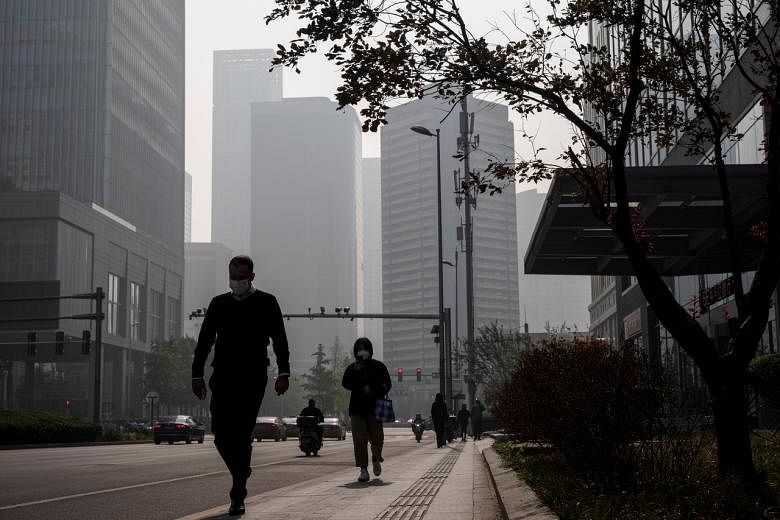BEIJING (REUTERS) - China aims to cut concentrations of hazardous, small airborne particles known as PM2.5 by an average of 4 per cent year on year this winter in main cities where it is trying to tackle pollution, the Ministry of Ecology and Environment said on Friday (Oct 29).
The ministry said in a notice that it would also strive to reduce the number of smoggy days in the cities by an average of two.
China's 2021-2022 winter campaign against pollution will focus on as many as 64 cities throughout the industrialised, smog-prone north, the ministry said in September.
Mr Wu Xianfeng, an official with the ministry's atmospheric environment department, told a briefing that "more sophisticated measures" would be used to curb smog, instead of blanket closures of factories.
China's air quality has improved steadily since it declared war on pollution in 2014, in response to growing public alarm about the hazardous industrial emissions that regularly drifted across northern cities.
In the first three-quarters of this year, PM2.5 levels in 339 cities nationwide fell 6.7 per cent on the year to 28 micrograms per cubic m.
China aims to keep the national average at 34.5mcg this year, in line with its "interim" air quality standard of 35mcg.
In guidelines published in September, the World Health Organisation said average annual PM2.5 levels should be no more than 5mcg, half its previous recommendation.
China's anti-smog programme is likely to come under scrutiny this winter after an unexpected energy crunch forced the authorities to secure more coal for power generation. China has vowed to clamp down on high-energy consuming enterprises to guarantee resources for residential heating and energy.
"As a developing country, China is currently facing the arduous tasks of developing the economy, improving people's livelihoods and maintaining energy security," climate department official Sun Zhen told a Wednesday briefing.
"There are still many practical difficulties and challenges in adjusting the energy structure, which cannot be accomplished overnight," he said.

